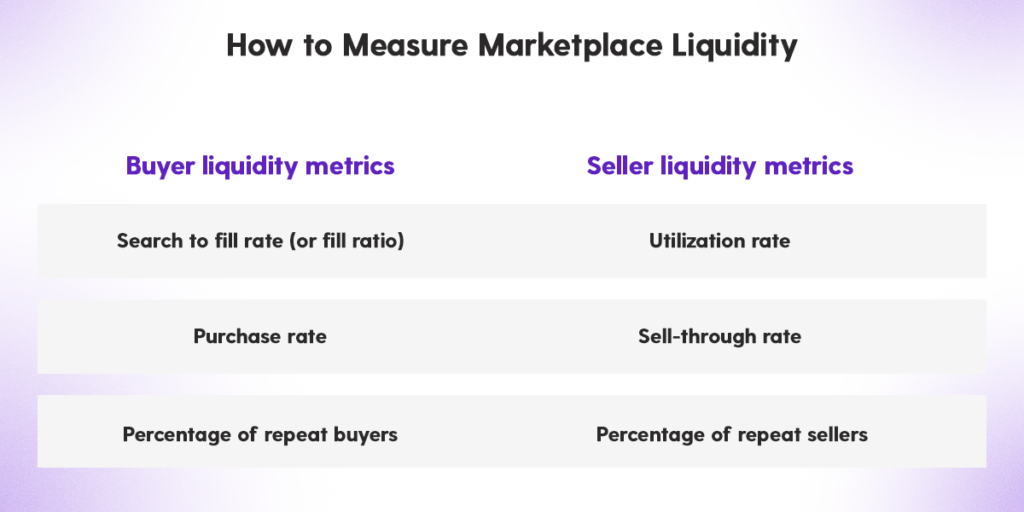Savor the Flavors: Bombay Beijing Fine Foods
Exploring the fusion of Indian and Chinese cuisines with delicious recipes and culinary tips.
Bubbles, Pools, and Liquidity: The Hidden Dance of Marketplace Models
Discover the secret dynamics of marketplace models and how bubbles and liquidity shape your next big investment! Dive in now!
Understanding Market Liquidity: How Bubbles Form and Burst
Understanding market liquidity is crucial for investors as it plays a significant role in the formation and bursting of financial bubbles. Market liquidity refers to the ability of assets to be bought and sold in the market without causing drastic changes in their prices. When liquidity is high, assets can be traded quickly, making it easier for investors to enter and exit positions. However, during periods of excessive optimism, liquidity can become distorted, leading to inflated asset prices. This can create a bubble, where the asset prices are driven more by speculation than by fundamental value, resulting in a precarious market situation.
Bubbles often form when market liquidity is abundant, allowing more investors to pour money into a particular asset class. This influx of capital can create a feedback loop, where rising prices attract more buyers, further driving up prices. However, the burst of a bubble usually occurs when liquidity begins to tighten, either due to changing market sentiment or external economic factors. As investors rush to sell their assets, the once liquid market can become choked with too much supply and not enough demand, leading to a rapid decline in prices. Understanding these dynamics is essential for navigating the complexities of financial markets and protecting investments from volatile shifts.

Counter-Strike is a popular tactical first-person shooter (FPS) game that has captivated millions of players worldwide. Teams composed of terrorists and counter-terrorists compete to complete objectives or eliminate the opposing team. Players often look for ways to enhance their gameplay experience, and one option is to use a daddyskins promo code for added benefits.
The Role of Pools in Marketplace Dynamics: An In-Depth Analysis
The concept of pools plays a crucial role in understanding marketplace dynamics, particularly in the context of decentralized finance (DeFi) and digital marketplaces. Pools serve as aggregation points, allowing a wide range of participants to come together and trade or invest in a collective resource. This not only increases liquidity but also enhances price discovery by bringing more players into the market. For instance, liquidity pools in DeFi allow users to provide funds in exchange for fees generated from trades, creating a win-win situation for both traders and liquidity providers. As these pools grow, they foster a more competitive market environment, leading to better prices for consumers.
Moreover, the effectiveness of pools is significantly influenced by the dynamics of supply and demand. When a pool is well-balanced—meaning supply meets demand—participants enjoy lower volatility and optimal trading conditions. However, when imbalances occur, consequences can ripple throughout the marketplace, affecting not just the participants in the pool but also the broader economy. Understanding these dynamics is essential for anyone looking to engage effectively in modern marketplaces. By dissecting the mechanisms at play in pools, we can better navigate the complex interactions that define today’s trading environments, leading to more informed and advantageous decisions.
Are Your Investments at Risk? Unpacking the Dance of Bubbles and Liquidity
In today's rapidly evolving financial landscape, understanding the dynamics of bubbles and liquidity is crucial for any investor. Bubbles occur when asset prices exceed their intrinsic value, often fueled by speculative buying and market exuberance. When this mispricing eventually corrects itself, it can lead to significant losses for those caught on the wrong side of the trade. Moreover, heightened liquidity—the ease with which assets can be bought or sold—can amplify these effects, making it even more important to assess whether your investments are in a precarious position.
To protect your portfolio, it's essential to evaluate the underlying factors contributing to bubbles and to monitor liquidity levels in the market. Consider the following strategies:
- Diversification: Spread your investments across various asset classes to mitigate risk.
- Research: Stay informed about market trends and economic indicators that can signal potential bubbles.
- Liquidity management: Ensure you have a strategy for maintaining liquidity in your portfolio during volatile periods.